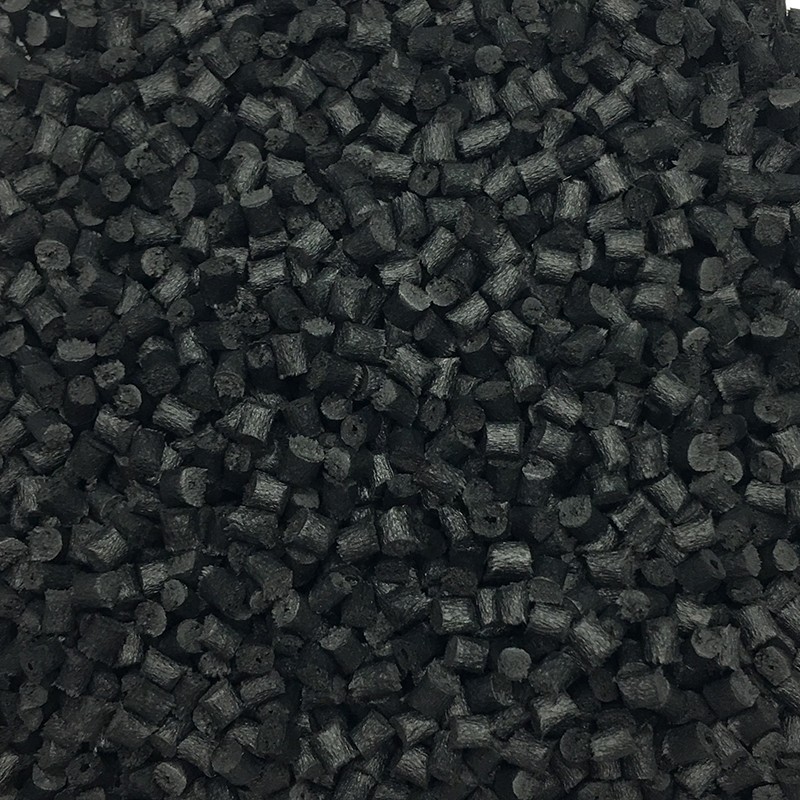Seven parameters of thermal properties of Jiangmen engineering plastics
The thermal property of engineering plastics is the sum of the properties of polymer materials related to heat or temperature, and it is one of the important properties of polymer materials.
1. Continuous operating temperature
Indicates the degree of heat resistance of plastic molded products. Generally, it is divided into physical heat resistance and chemical heat resistance. The former refers to the performance of the plastic molding style with specified shape to maintain the shape of the product under the specified heating temperature; The latter indicates the thermal stability of bisector bonds of plastic molding materials. The continuous working temperature mainly indicates the heat resistance of plastic molding style under no-load condition. Common engineering plastics such as PEEK have a long-term working temperature of 260 ℃.
2. Glass transition temperature
When the temperature is higher than TG, the amorphous polymer will become soft and rubbery. It is very important to ensure that the service temperature of amorphous polymers is lower than TG, so as to obtain ideal mechanical properties.
3. Thermal deformation temperature
Thermal deformation temperature is a popular term for load deflection temperature. It is a method to measure the rigidity of plastics at high temperature: under a certain load, continue to heat at a certain speed until the temperature when the style shows the indicated deformation. Since the load deflection temperature is the lower limit temperature indicating that it is close to the glass transition temperature in amorphous plasticity, it can become a practical reference index. However, in the crystal plasticity prediction, the load deflection temperature is the temperature between the glass transition point and the crystallization melting point, so it is meaningless in theory and practice, and the deviation of the measured results is also very obvious. This parameter is used to measure the temperature tolerance of different materials under short-time temperature rise and load.
4. Linear expansion coefficient

Linear expansion coefficient refers to the expansion ratio of plastic molded products when the temperature rises by 1 ℃ under a certain pressure, which indicates the linear expansion coefficient relative to the unit length. This coefficient is one of the important indexes to understand the change degree of product size with the increase of plastic forming product temperature.
5. Thermal conductivity
The thermal conductivity indicates the heat of finished plastic products with a temperature difference of 1 ℃ and a thickness of 1 cm within 1 s. It is a reference index for studying the thermal insulation of policy products when designing products.
6. Specific heat capacity
Specific heat capacity refers to the heat capacity relative to the unit mass (1g) of plastic molded products. Generally, it indicates the heat required when the temperature of plastic molded products rises by 1 ℃. The specific heat capacity is the same as the thermal conductivity, which is the reference data for studying the temperature rise of products during product design.
7. Embrittlement temperature
A measure of the low temperature mechanical behavior of plastics. When the specimen is impacted by a hammer with certain energy, the temperature when the cracking probability of the specimen reaches 50% is called the embrittlement temperature. Determination of embrittlement temperature: clamp one end of the shaped style with the specified shape and size with the experimental pliers, fix it in the experimental tank, soak it in the designated low-temperature heat transfer media at all levels, place it for 2.9-3.1min, and knock it once with an impact hammer to calculate the embrittlement temperature from the results of the style damage.
This article is from Jiangmen Engineering Plastics:http://www.fcyou.com/
-
04-13
PVC Engineering Plastics: how PVC plastic pipes are formed
The forming process of PVC plastic pipes should start from the raw materials of PVC plastic granules, which can be divided into soft PVC and hard PVC according to the added amount of stabilizer, plast
-
11-12
What is the filling property of Jiangmen engineering plastics
What is the filling property of Jiangmen engineering plasticsIn recent years, PC modified plastics have developed rapidly in China, and its industrial system is gradually established and improved. Th
-
10-08
Jiangmen Engineering Plastics: how to classify Jiangmen engineering plastics?
How to classify Jiangmen engineering plastics? 1. Classification by application characteristicsAccording to the different application characteristics of famous plastics, plastics are usually divided
-
08-30
Application scope of PBT engineering plastics
PBT engineering plastics are widely used in electronics, car industry, office machinery and other fields. In Japan and the developed countries in Europe, PBT engineering plastics are mainly used in t